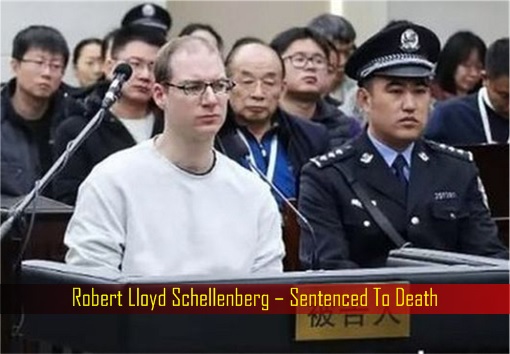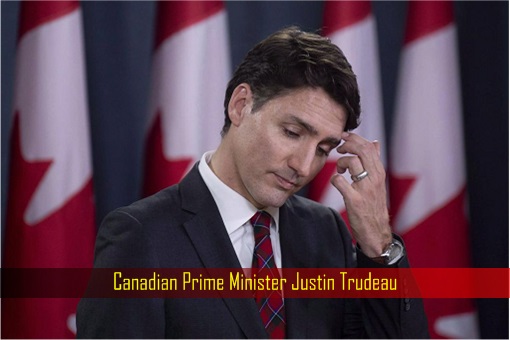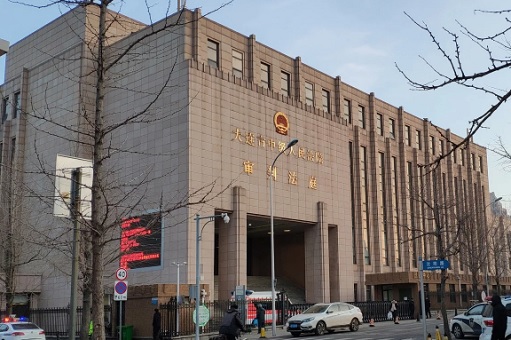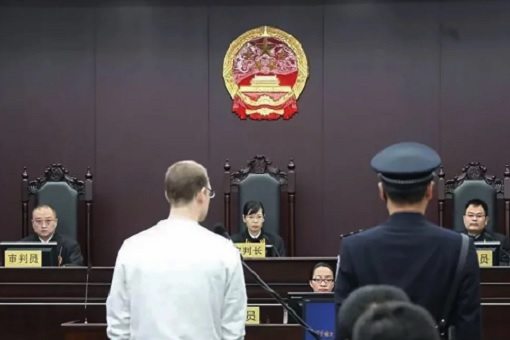Robert Lloyd Schellenberg, a Canadian citizen, could stay alive if not for the China-Canada diplomatic hostilities. The 36-year-old former oil worker was detained in Liaoning province in 2014 for trying to smuggle more than 200kg of methamphetamine in China. That’s a huge amount of drugs. Still, he was sentenced to only 15 years in prison and fined 150,000 Yuan (US$22,000) in November last year.
Under the China’s Criminal Law, anyone found guilty of smuggling, trafficking, transporting or manufacturing opium of not less than 1,000 grams of heroin or 50 grams of methylaniline or other narcotic drugs of large quantities shall be sentenced to fixed-term imprisonment of 15 years, life imprisonment or death, as well as confiscation of property.
Obviously, the Canadian was initially given the lightest punishment for trafficking drugs. According to court reports, Mr. Schellenberg instructed a translator, Xu Qong, to carry out a series of activities, including the purchase of car tyres to hide the methamphetamine for smuggling purposes. He tried to flee to Thailand when the authorities were hunting him down.

Unfortunately, his luck ran out and the Canadian was intercepted and arrested in Guangzhou. The arrest of Sabrina Meng (also known as Cathy Meng), chief financial officer of Chinese tech giant Huawei, in Canada has practically changed Schellenberg fate entirely. Beijing had to flex muscle to show Ottawa that there is a price to pay for being the bitch of the U.S.
Canada arrested Ms Meng on Dec 1, 2018, the daughter of Huawei’s founder Ren Zhengfei, at the request of the United States, which is presently engaged in a trade war with China. Currently granted bail, but under strict electronic monitoring, she faces extradition to the U.S. to face fraud charges that carry a maximum sentence of 30 years jail for each charge.
Had Canada not arrested the Huawei top executive, the worst that could have happened to Robert Lloyd Schellenberg is to serve his 15 years in a Chinese prison. It didn’t take a genius to guess why prosecutors requested for a retrial, arguing the sentence was too lenient. Liaoning High People’s Court, a high court in the north-eastern province of Liaoning, allowed the appeal on Dec 29 and ordered the retrial.

As feared, but predicted, Mr. Schellenberg failed to convince the Chinese court that he was just a tourist framed by criminals. As it turned out, Xu Qong became a witness against the Canadian. Two other Chinese men were involved in the case – one was sentenced to life in jail, while the other was given a suspended death sentence.
Mr. Schellenberg was detained for 15 months before his first trial, and it took an additional 32 months before a court declared him guilty and sentenced him to 15 years in prison. Yet, in this retrial, it took the court merely 20 minutes to sentence him to death, suggesting that the writing was on the wall before the hearing that Schellenberg would meet the unfavourable decision – to be executed by lethal injection.
The speed at how the Chinese court concluded its trial, conviction and sentencing is being seen as nothing but a political move to make Schellenberg a pawn or bargaining chip to pressure Canada to release Huawei princess Sabrina Meng. Canadian Prime Minister Justin Trudeau accused Beijing of “arbitrarily” using capital punishment, deepening a diplomatic rift between the two countries.

Sure, the Canadian citizen has 10 days to appeal the court’s decision. However, unless the Huawei CFO is released, and deals behind closed doors are made between both countries, it’s hard to see how Schellenberg can escape the death sentence. In recent years, Chinese courts have repeatedly made the point that foreigners will not be treated differently from Chinese nationals in drug convictions.
Even so, death sentences for citizens of Western countries are rare in these cases, most probably because China has been adopting discrimination in favour of foreigners due to possible uproars, such as the one demonstrated by Canadian PM Justin Trudeau. It’s worth to note that between 2009 and 2015, China executed at least 19 foreigners for drug trafficking.
Almost immediately after Schellenberg was sentenced to death, Canada is warning citizens to “exercise a high degree of caution” when travelling to China. The revised advisory cautioned travellers of the “risk of arbitrary enforcement of local laws,“ and noted that the “safety and security situation could change with little notice”.


Even if Canada refuses to be intimidated by China over the latest death sentence, and is willing to let its citizen to be executed, Beijing still possesses two Canadians in secret detention – Michael Kovrig, a former diplomat, and Michael Spavor, a businessman – being accused of “endangering national security.” The ball is in the Canadian’s court.
Other Articles That May Interest You …
- A Canadian May Be Sent To Death – China Retaliation Over Arrest Of Huawei Princess Continues
- From Trade War To Political Kidnapping – Two Canadians Held “Hostage” As China Retaliates
- The U.S. Allies Versus China – Japan Joins The Bandwagon To Ban Chinese Huawei & ZTE Technology
- China Furious!! – CFO & Daughter Of Huawei Founder Arrested In Canada On Behalf Of The U.S.
- National Security Threat – China’s Huawei & ZTE “5G Technology” Banned In Australia
- US-DOJ Investigates Huawei For Violating Iran Sanctions – It’s All About Business, Stupid!!
- China Reveals Strategy To Fight U.S. Trade War – Stop Buying American Debt
- China Invasion – Top 10 American Iconic Brands Now Owned By Chinese

|
|
January 15th, 2019 by financetwitter
|


|

|

|

|

|

|




























Comments
Add your comment now.
Leave a Reply